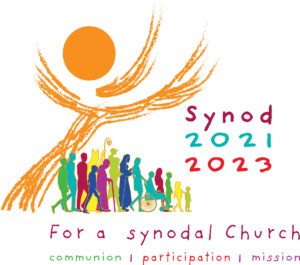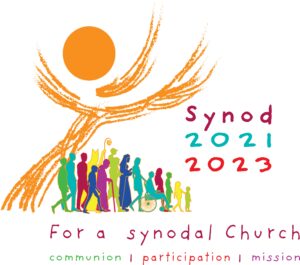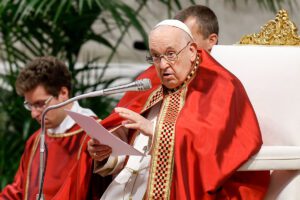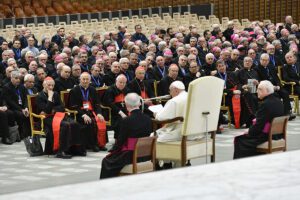VATICAN CITY (CNS) – The Catholic Church must continue discerning its future by listening to everyone, starting with the poorest and excluded, after the assembly of the Synod of Bishops closes its first session, participants said in a letter addressed to the “People of God.”
The two-and-a-half-page letter published Oct. 25 recounted the spirit and activities of the assembly’s first session, held at the Vatican Oct. 4-29, and looked ahead to the assembly’s second session, expressing hope that the months leading up to October 2024 “will allow everyone to concretely participate in the dynamism of missionary communion indicated by the word ‘synod.'”
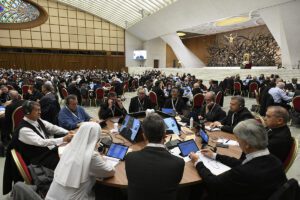
“This is not about ideology, but about an experience rooted in the apostolic tradition,” the synod assembly wrote.
While the letter does not raise specific topics or questions to be addressed in the assembly’s next session — a synthesis report reflecting the work of the first session and next steps is expected to be published Oct. 28 — it did say that to “progress in its discernment, the church absolutely needs to listen to everyone, starting with the poorest.”
“It means listening to those who have been denied the right to speak in society or who feel excluded, even by the Church,” the letter said, specifying the need to listen to victims of racism, particularly Indigenous populations. “Above all, the Church of our time has the duty to listen, in a spirit of conversion, to those who have been victims of abuse committed by members of the ecclesial body and to commit herself concretely and structurally to ensuring that this does not happen again.”
The letter made special reference to the need for listening to the laity, catechists, children, the elderly, families and those who want to be involved in lay ministries and “participate in discernment and decision-making structures” of the church.
It also specified that the church must gather more experiences and testimonies from priests, bishops and consecrated persons, while being “attentive to all those who do not share her faith but are seeking the truth.”
The drafting of the letter was approved by the synod assembly and was discussed both during small group working sessions and among the entire assembly Oct. 23, the synod general secretariat said.
It began by recounting the “unprecedented experience” of men and women participating in discussions and exercising voting rights in a synod assembly by virtue of their baptism and not based on ordination.
The assembly, it said, took place in a “world in crisis, whose wounds and scandalous inequalities resonated painfully in our hearts, infusing our work with a particular gravity, especially since some of us come from countries where war rages.”
The letter also highlighted the “significant room for silence” made at the Pope Francis’ invitation, meant to “foster mutual listening and a desire for communion in the Spirit among us.”
“Trust,” the synod assembly wrote, is what “gives us the audacity and inner freedom that we experienced, not hesitating to freely and humbly express our convergences, differences, desires and questions.”
“Day by day, we felt the pressing call to pastoral and missionary conversion,” the assembly said. “For the Church’s vocation is to proclaim the Gospel not by focusing on itself, but by placing itself at the service of the infinite love with which God loved the world.”
The letter also shared that homeless people near St. Peter’s Square were asked about their expectations of the church on the occasion of the synod and they replied: “Love!”

